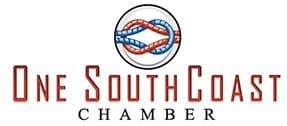Borders, Business, and Belief: Navigating the Realities of Immigrant Entrepreneurship
Starting a business is never simple, but for immigrants stepping into entrepreneurship, the path often feels steeper and foggier. The dream of self-made success clashes daily with unfamiliar systems, limited support networks, and unspoken biases. Despite this, immigrant entrepreneurs remain some of the most resilient and innovative forces in global economies. Their stories are complex — shaped by grit, shaped by displacement — and threaded with both risk and extraordinary vision.
Understanding the System When the Rules Keep Changing
Every country has its own set of business laws, licensing requirements, and tax structures, and even locals struggle to keep up. For newcomers, especially those without formal training in the local language, deciphering government regulations can become an exhausting process. It’s not uncommon to see talented business minds sidelined by paperwork or penalized for honest mistakes. The best remedy here isn't just a translated brochure but real-time mentorship — think incubators, small business centers, and even peer-led workshops that explain legal systems with lived clarity.
Choosing the Frame Before You Build
Figuring out how to structure your business isn’t just paperwork — it shapes your taxes, liability, and how much personal risk you take on. Many entrepreneurs lean toward forming an LLC because it offers legal protection while keeping things flexible and relatively simple. You can save hundreds on legal fees by either self-filing or using an online formation service that walks you through the steps. For those getting started in the Northeast, this guide on how to form an LLC in Rhode Island can make that decision feel less daunting.
The Cash Gap No One Wants to Talk About
Banks love to say yes — but only after checking credit histories, collateral, and years of financial documentation. For recent arrivals with none of that, traditional funding channels quickly shut down. This challenge often forces immigrant founders to bootstrap their businesses or rely heavily on family contributions, which comes with its own pressures. Community development financial institutions (CDFIs), credit unions, and crowdfunding platforms tailored to immigrant stories can offer smarter, more empathetic solutions — not just funding, but belief.
When Networks Don’t Run Deep Yet
Business thrives on relationships. The chance meetings, the introductions at someone’s wedding, the friend of a friend who knows a guy. Immigrant entrepreneurs often find themselves outside these circles, and getting in can feel like trying to crash a party without knowing the dress code. Building a network isn’t only about handshakes, though. Volunteering in local associations, showing up at industry events, and joining business-oriented language programs can create opportunities for genuine connection — not just surface-level introductions.
The Accent That Becomes a Wall
Bias wears a suit and speaks in polite tones. A name that doesn’t sound “familiar,” or an accent that signals foreignness, can quietly affect everything from supplier relationships to customer trust. It’s not just frustrating — it’s demoralizing. But there’s strength in doubling down on authenticity, in carving a niche that no one else can fill. Cultural identity becomes a business asset when framed with pride, and storytelling becomes a powerful tool for drawing in customers, press, and partners.
Family Pressure, Cultural Expectations, and the Double Life
Many immigrant entrepreneurs juggle two realities: the business they’re trying to build and the family responsibilities they carry across borders. Elders may not understand entrepreneurship as a career path, especially when it doesn’t immediately yield visible results. There’s also the guilt of time spent away from children, spouses, or aging parents. One way through is creating structure — boundaries around work hours, open conversations with family about the timeline of entrepreneurship, and even involving relatives in the business when it makes sense, turning doubt into investment.
Burnout Comes Quicker When You Carry Everything Alone
There’s a kind of fatigue that settles in when you’re always on. For immigrant entrepreneurs, the pressure to succeed often feels existential — failure isn’t just personal; it reflects on entire families, sometimes entire communities. The hustle culture doesn't help, nor does the myth of self-reliance. What’s needed is a cultural shift within immigrant entrepreneurship itself — one that values rest, that encourages mental health check-ins, and that treats delegation and downtime not as luxuries but as business strategies.
Immigrant entrepreneurs aren’t just chasing opportunity — they’re reshaping economies with every storefront, every service, every invention. The challenges are real, and the solutions aren’t one-size-fits-all. But with the right support structures, a little patience from the systems around them, and a deeper understanding from the rest of us, their journeys don’t have to be so lonely. What they bring to the table is more than survival; it’s reinvention. And it deserves every chance to thrive.
Discover how One SouthCoast Chamber can empower your business with growth opportunities and community connections in the vibrant South Coast region!

